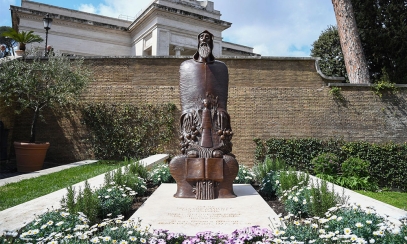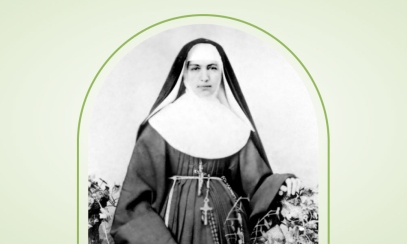Perpetua and Felicity
The heartbreaking account of the martyrdom of Perpetua and Felicity was written by Perpetua herself and continues to mystify and edify Christians today.
St. Perpetua became a Christian in 203 A.D. during a period of persecution. Her father was against her decision and attempted to dissuade her.
She was 22 years old, well-educated, married (possibly widowed) and had a baby boy she was still nursing. However, she was unmoved by his pleadings. She asked her father, “See that pot lying there? Can you call it by any other name that what it is?” When he responded that he could not, she said, “Neither can I call myself by any other name than what I am – a Christian.”
She was soon arrested with four other catechumens, including the slave Felicity. Although separated from her child in an overcrowded prison in stifling heat, Perpetua’s pain was overshadowed by Felicity’s who was eight months pregnant and who was suffering immensely from the rough handling of the guards.
Two days before the execution date, Felicity gave birth to a girl who was adopted by another Christian.
On the day of execution, Perpetua and Felicity, along with the others, entered the arena with joy and calm. They stood side by side as they had their throats slit.
What causes people like Perpetua and Felicity to stand firm in the face of death, ignoring the pleadings of loved ones, and of abandoning their small children?
An Eastern sage once remarked, “A truth that is not acted upon becomes a poison.” This same sense is what we find in the witness of these saints. Once they encountered the truth that is Jesus Christ, they could not live in denial of this.
Had they renounced Christianity in order to save their lives, they would have introduced a contradiction into their lives which would have been far worse than physical death. To know the Truth and then live as if the Truth does not exist is a poison far more deadly to the soul than the knives of any executioner.



